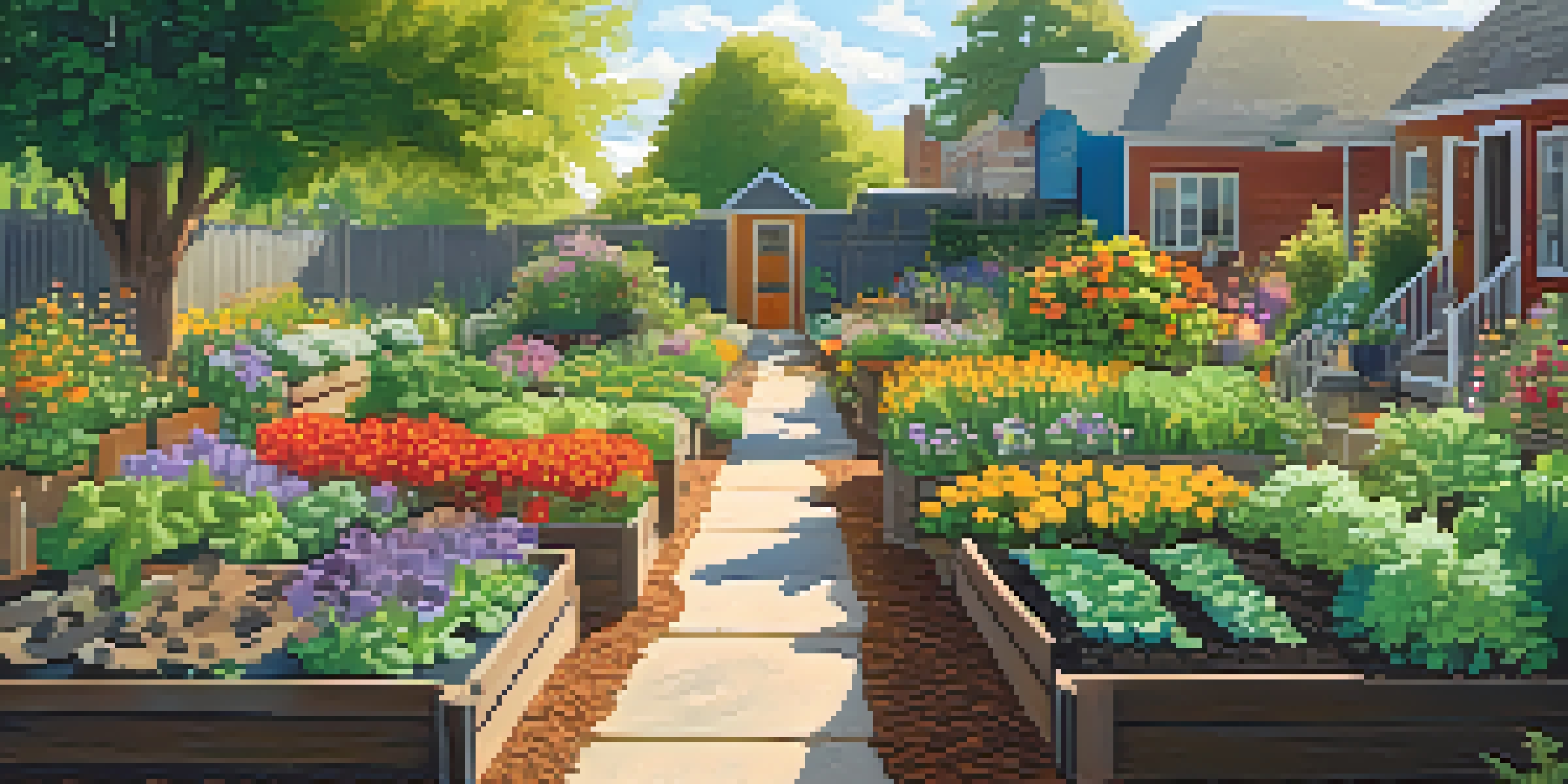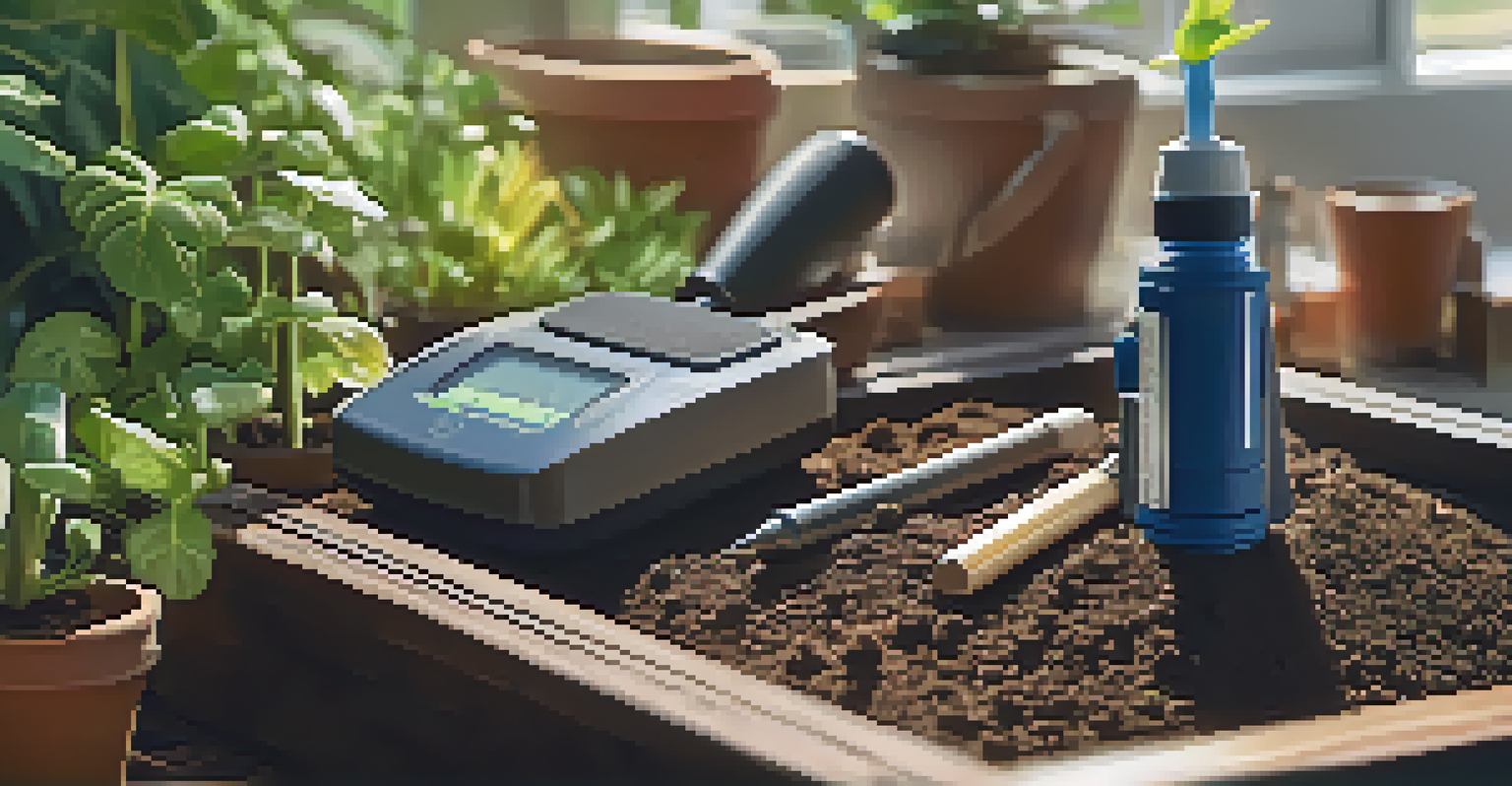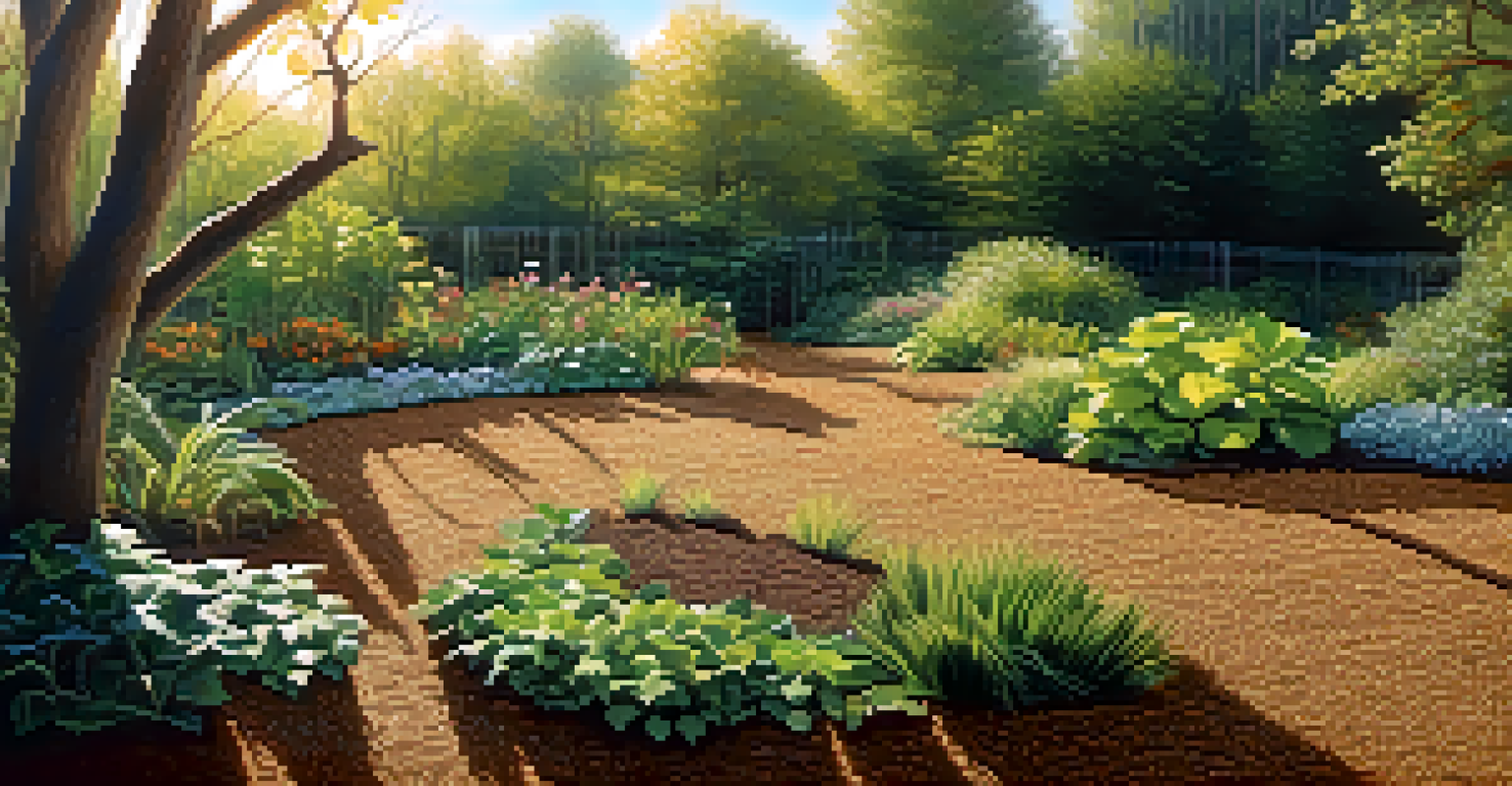Soil Health: Essential Tips for Urban Garden Success

Understanding Soil Health: The Basics for Gardeners
Soil health is more than just the dirt beneath our feet; it's a living ecosystem. Healthy soil contains microorganisms, nutrients, and organic matter that work together to support plant growth. When you think of soil health, imagine a bustling city where every organism plays a vital role in keeping things running smoothly.
Healthy soil is the key to healthy plants.
In urban gardens, soil health can often be overlooked, leading to poor plant performance. By prioritizing soil health, you're not just improving your garden; you're also enhancing the environment around you. A thriving soil ecosystem can reduce pests, improve water retention, and promote healthier plants.
To understand soil health, consider factors like texture, structure, and nutrient content. Just as a well-balanced diet is crucial for your health, balanced soil composition is essential for your plants' success. Let's explore how to assess and improve the health of your urban soil.
Testing Your Soil: The First Step to Success
Before diving into gardening, it's essential to know what you're working with—this is where soil testing comes in. Testing your soil can reveal its pH level, nutrient content, and any contaminants that may be present. Many local extension services offer affordable soil testing kits to help you get started.

Understanding your soil's composition allows you to make informed decisions about what amendments may be necessary. For instance, if your soil is too acidic, you might need to add lime to balance it out. Think of it like tuning a musical instrument; you need to know the current notes before you can make harmonious adjustments.
Prioritize Soil Health for Success
Healthy soil is essential for thriving plants, enhancing the garden environment and supporting pest reduction.
Once you have your test results, take a moment to reflect on what they mean for your gardening goals. Whether you're growing vegetables, flowers, or herbs, knowing your soil will guide your next steps and set you up for success.
Building Healthy Soil: Adding Organic Matter
One of the best ways to improve soil health is by adding organic matter, like compost or well-rotted manure. Organic matter enhances soil structure, increases moisture retention, and boosts nutrient availability. It's like adding a rich, nutritious sauce to a bland dish—suddenly, everything tastes better!
The soil is the great connector of our lives, the source and destination of all.
As you create your compost pile, think about what you can include: fruit and vegetable scraps, coffee grounds, and even shredded paper. These ingredients break down over time, transforming into nutrient-rich compost that enriches your soil. Plus, composting reduces waste and contributes to a more sustainable urban environment.
Incorporating organic matter regularly not only improves soil health but also supports a diverse community of soil organisms. This diversity is crucial for breaking down nutrients and promoting plant growth. So, roll up your sleeves and dig in—your future plants will thank you!
Mulching: Protecting and Nourishing Your Soil
Mulching is a simple yet effective way to protect your soil and enhance its health. By applying a layer of organic material, such as straw, wood chips, or leaves, you can suppress weeds, retain moisture, and add nutrients as it breaks down. Think of mulch as a cozy blanket for your garden, keeping it warm and safe from harsh elements.
In an urban environment, where soil can dry out quickly, mulching is especially important. It helps to prevent soil erosion and keeps the temperature stable, which is beneficial for plant roots. Additionally, mulched gardens tend to require less frequent watering—saving you time and effort.
Utilize Organic Matter for Growth
Adding organic matter like compost enriches soil structure and boosts nutrient availability for better plant health.
Choosing the right mulch is key; organic mulches provide the added benefit of improving soil as they decompose. So next time you're planning your garden layout, don’t forget to layer on that mulch for a flourishing ecosystem!
Crop Rotation: A Smart Strategy for Soil Health
Crop rotation is a gardening strategy that can be a game changer for soil health. By changing the types of plants you grow in a specific area each season, you help prevent nutrient depletion and reduce pest build-up. Imagine rotating roles in a play; it keeps things fresh and prevents any one actor from getting too comfortable.
Different plants utilize various nutrients and contribute uniquely to soil health. For instance, legumes, like beans and peas, can fix nitrogen in the soil, enriching it for the next crop. This practice not only boosts soil fertility but also enhances biodiversity, creating a more resilient garden ecosystem.
Planning your crop rotation can seem tricky at first, but it can also be a fun challenge. Keep a journal or chart to track what you’ve planted and where, helping you easily visualize your garden’s future. Over time, you'll notice how this practice pays off with healthier plants and bountiful harvests.
Water Management: Essential for Soil and Plant Health
Water management is crucial for maintaining healthy soil and thriving plants, especially in urban settings where water can be limited. Proper watering techniques can prevent soil erosion, compaction, and nutrient leaching. Think of it as finding the right balance in a relationship; too much or too little can lead to problems.
Using techniques like drip irrigation or rainwater harvesting can improve water efficiency and keep your soil moist without over-saturating it. Mulching also plays a role here, as it helps retain moisture in the soil, reducing the frequency of watering. This not only saves you time but also ensures your plants get the hydration they need.
Implement Smart Water Management
Effective water management techniques prevent erosion and maintain soil moisture, ensuring plants receive adequate hydration.
As you develop your watering routine, pay attention to how your plants respond. Adjust your watering based on the season, plant types, and local weather conditions. With a little observation and flexibility, you'll create a thriving garden that respects both plants and soil.
Pests and Weeds: Managing Challenges in Urban Gardens
Pests and weeds can pose significant challenges for urban gardeners, but maintaining healthy soil can help mitigate these issues. Healthy soil encourages strong plant growth, making them more resilient to pests and diseases. It’s like building a strong foundation for a house—without it, everything else is at risk.
Implementing natural pest control techniques, such as companion planting and attracting beneficial insects, can further protect your garden. For example, planting marigolds can deter certain pests while attracting pollinators. This approach not only keeps your plants safe but also promotes a balanced ecosystem in your garden.

Regularly monitoring your garden for signs of pests or weeds allows you to act quickly and effectively. The earlier you catch a problem, the easier it is to manage. By embracing natural solutions and nurturing your soil, you can create a flourishing urban garden that thrives amidst the challenges.